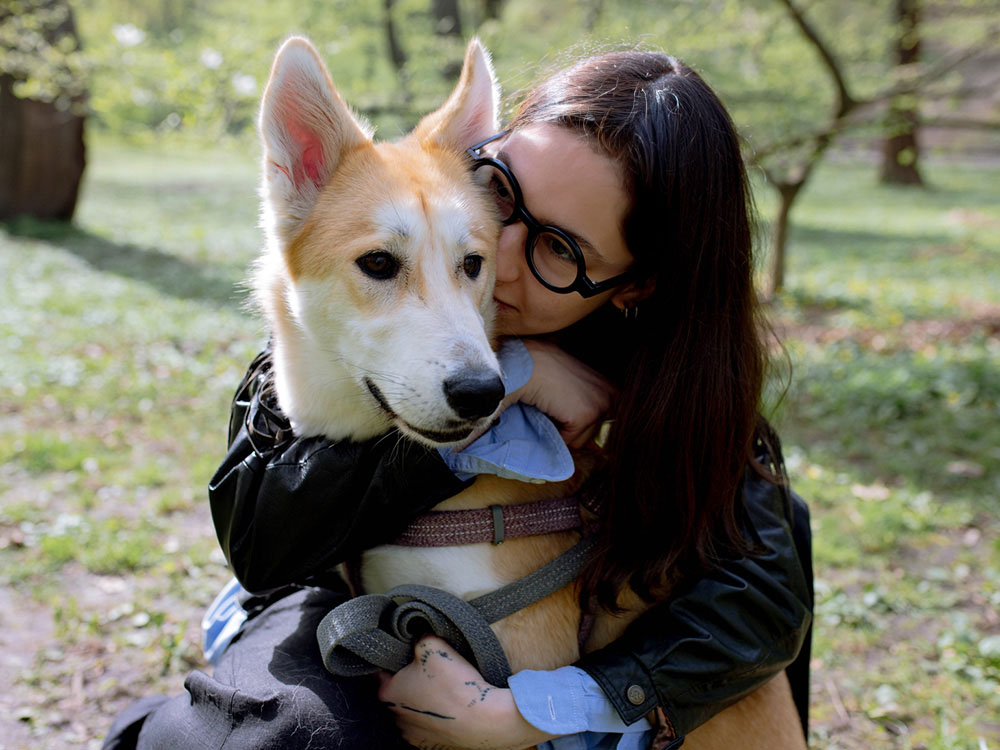The debate over whether one should obtain a new dog from a rescue or breeder is a hot one.
I’ve been privy to the passionate breeder vs rescue debate for over 10 years.
It’s true that there are a lot of dogs dying in shelters each year.

However, the issue won’t be solved simply by no one buying a puppy from a breeder.
Let’s take a closer look at the reason that dogs in shelters are euthanized.
In reality, the issue is very nuanced, and responsibility does not fall on one individual’s shoulders.
When Did Dog Adoption Become the Only Right Thing to Do?
In the United States animal rescue began in 1866 when Henry Bergh founded the American Society for the Prevention of Cruelty to Animals (ASPCA) in New York City (source)
In 1869, the first U.S. animal shelter, created by Caroline Earl White along with other female animal activists, opened as The Women’s Branch of the Pennsylvania Society for the Prevention of Cruelty of Animals in Philadelphia. (source)
In 1944, the North Shore Animal League and Dog Protective Association, Inc. rescuing homeless animals in Long Island and dedicating itself to the No-Kill philosophy, was founded. (source)
In the 1970, pet ownership increased significantly, with about 60% of American households owning one.
Time Magazine reported, “…As the number of breeders increased, so did the number of cats and dogs—not all of which had homes…”
As the issue of homeless pets increased, animal-welfare groups like the Humane Society of the United States, started heavily promoting spay and neuter programs, as well as pushing animal shelters as the first place one should look for a pet.
In 1984, The “Adopt Don’t Shop” campaign was started by an organization based in Los Angeles called “Last Chance for Animals”, founded by Chris DeRose. (source)
I think it’s important to note here that Last Chance for Animals started this campaign to combat puppy mills, and the sale of those puppies in pet stores, and NOT responsible, high-quality dog breeders (source).
The movement has since gained widespread support from animal welfare advocates, the general public, and celebrities.
In 2009, The Shelter Pet Project, created by the Advertising Council, Maddie’s Fund and The Humane Society of the United States, was launched.
The campaign urged people looking for a new pet to make shelters and rescue groups their first choice for acquiring a new pet and communicated this message via billboards, bus shelters, websites, TV and radio.
In more recent years, the adopt don’t shop message has been pushed to the extreme where people are now being shamed for wanting to get a dog from a breeder…. any breeder.
But most of these well-meaning people don’t know how the primary “adopt don’t shop” campaign started and that it was intended to stop unethical breeding operations like puppy mills.
The Simplified and Dramatic Messaging
Animal advocacy groups like PETA (People for the Ethical Treatment of Animals), and “adoption only” advocates, perpetuate the idea that more dogs will die if someone buys a puppy instead of adopting a dog from a shelter.
PETA, takes this message to the extreme when they say:
“When you buy, a shelter dog will die. About half of the millions of dogs in shelters are euthanized each year because of a lack of good homes.
Buying from breeders destroys the chances of a dog in a shelter getting to live and to experience being part of a loving family.”
PETA would like you to believe that you are killing dogs by buying a puppy from a breeder.
They would like you to believe that:
1) your one choice do get a dog from a breeder is a guaranteed death sentence for a shelter dog and;
2) you alone are responsible for whether a shelter dog is euthanized or not
The thing is though, buying a puppy from a breeder vs rescuing one is not the one thing that will save dogs from dying in shelters.
By Buying a Puppy from a Breeder, Are You Killing a Shelter Dog?
A common rebuttal to the desire to buy a puppy from a breeder, is the notion that doing so will kill dogs in shelters.
More specifically, shelters are always at full capacity and if you don’t adopt a dog there will be no space to take in another homeless dog or rescue from a harmful situation.
The thought process follows that if there is no space to intake a needy dog, one has to be euthanized to make room for the new dog.
Make no mistake – this does happen.
According to the ASPCA (American Society for the Prevention of Cruelty to Animals®), although the number of dogs euthanized in U.S. shelters annually has declined significantly since 2011, approximately 390,000 shelter dogs are still euthanized each year.
However, only a fraction of these dogs are euthanized solely to make room for another needy dog.
In other words, only a fraction are euthanized because someone chooses to buy a puppy from a reputable breeder instead of adopting one from a shelter.
Let’s look at what other factors influence the number of dogs and shelters and the decision to euthanize any of them.
Why Do Dogs End Up In Shelters?
The message that buying a puppy will result in overcrowded shelters ignores the real reason there are so many dogs in shelters and rescues in the first place.
Spoiler alert: Buying from a (responsible) breeder is low on the list of reasons.
According to Petfinder, the top reasons that dogs are surrendered to shelters or rescues by owners are:
- Moving and housing issues (13%)
- Cost of pet maintenance or medical bills due to pet illness(es) (9%)
- Too many animals in the household/inadequate facilities (8%)
- Having no time for pet (4%)
- The owner having personal problems (4%)
- Biting (3%)
- No homes available for litter mates (3%)
In another study, the ASPCA found that the primary reasons an owner might rehome their pet (to another family or surrendered to a shelter) were:
- Pet problem (46%)
- Family problem (27%)
- Housing problem (18%).
The most common issues related specifically to the pet being surrendered (pet problem) were:
- Aggression (35%)
- Destruction (29%)
- Health problems (26%).
The most common individual family related reasons were:
- Family health troubles (44%)
- Allergies (24%).
The most common housing related reasons were:
- Landlord (43%)
- Not enough space (39%)
The other elephant in the room is…..
Many animals that end up at the shelter are picked up by animal control or found by a stranger and turned into a shelter.
According to the ASPCA, only about 23% of dogs brought to shelters as strays are reunited with their owners (source).
Top reasons that stray dogs are not reunited with their owners include that the dog is not wearing identification and/or the owner can not be located.
Addressing the root cause of animals being surrendered to shelters or rescues in the first place would have one of the biggest, if not the biggest, impact on the shelter overcrowding issue.
What Really Results in Less Dogs Being Killed in Shelters?
The number of dogs and cats that are euthanized in shelters each year in the United States has decreased significantly since the 1990s, thanks in part to increased awareness about adoption.
However, this success can also be attributed to spay and neuter awareness and programs, which do not solely apply to rescue animals, and a greater overall degree of education about pet ownership.
Despite what staunch proponents of pet adoption or rescue will have you believe, there is no direct causal relationship between buying a puppy from a breeder and dogs dying in shelters.
The fact is that a large number of dogs are euthanized in shelters because:
- Of serious health issues that can’t be treated
- A dog is labeled aggressive or dangerous and poses a risk to other animals or people
- A dog has other severe behavioral issues that can’t be addressed through training or rehabilitation
Yes, another reason is overcrowding and a lack of resources (people and funding) to properly care for all of the animals.
But is that a funding issue or a too-many-animals issue?
I say a little of both.
I will also note, I have personally received messages from people over the years who thought the best way to have their elderly dog euthanized was to take them to a shelter so they could do it.
That’s right – whether it be for financial reasons or lack of education – some people think a shelter is where you take a dog that needs to be euthanized.
According to my rescue friends, this really does happen.
So, some of the dogs being euthanized in shelters are purposely being brought to a shelter to end their life.
All Dog Breeders Are Not Irresponsible and Contributing to Overpopulation in Shelters
When discussing buying a puppy, all dog breeders get lumped into the same category.
For all intents and purposes anyway.
When pushed, all but the most staunch rescue-only supporters will say that buying a puppy from a responsible, “reputable” breeder is ok.
The issue is that most puppy buyers don’t, whether it be from a lack of education or severe puppy fever that makes them make irresponsible choices, so rescue-only folks would rather just eliminate the possibility of a mistake by taking buying a puppy off the table.
I get that. Design the message for the lowest common denominator.
But people also need to stop automatically parroting “you’re killing a shelter dog” to those of us that thoroughly research high-quality breeders, wait sometimes years for the one that fits our family and lifestyle best, and are highly responsible pet owners.
In reality, there are a spectrum of breeders, ranging from the most responsible to most irresponsible.
Here are the general categories, listed from the best to worst:
Reputable or responsible breeder
A reputable breeder is someone who is dedicated to producing healthy, well-socialized puppies that meet breed standards.
They prioritize the health and welfare of their dogs over profit, often perform genetic testing on their breeding dogs, vet potential homes very carefully, provide a contract and health guarantee for their puppies, and are available for ongoing support and advice.
Not all, but most of the issues that result in dogs being surrendered to shelters can be mitigated by buying a dog from a responsible breeder.
Responsible breeders will always find homes for their puppies and would never surrender them to a shelter.
These breeders care where their puppies end up, and want to give them the best chance for success, and they will always take them back if an owner can’t keep the dog for any reason.
In other words, the chance that a dog obtained from a responsible breeder will end up in a shelter and add to the overpopulation problem is slim to none.
If a dog from a responsible, reputable breeder ends up in a shelter, it’s not because of the act of breeding puppies.
It’s because the owner, for whatever reason, doesn’t comply with the contract.
Reputable breeders are sometimes referred to as “Hobby Breeders”, although I think of a hobby breeder as one without as much knowledge about the breed, who doesn’t generally do genetic testing, and is not as rigorous about choosing the homes their puppies go to (although this is not always the case).
Backyard breeder
A backyard breeder is someone who breeds dogs without the same level of dedication to the health and welfare of their dogs as reputable or hobby breeders.
Backyard breeders, in part, got this name due to the casualness with which they breed two dogs together.
They may just breed together any two “neat looking” Dachshunds by “putting them in the back yard” together and letting nature take its course.
They may not even breed a Dachshund to a Dachshund. They may breed to a mix or other breed like Chihuahua.
These breeders often breed their dogs solely for profit, without regard for genetic testing or breed standards.
They may not provide adequate care or socialization for their dogs and may keep them in subpar living conditions (although many of them do not).
While some will, these breeders do not generally take a dog back if an owner doesn’t want it anymore.
People who choose to breed their dog because they want their children to experience the miracle of birth, because they love the personality and look of their dog, or have “oops” litters fall into this category.
Commercial breeders/puppy mills
A puppy mill breeder is a type of dog breeder that prioritizes profit over the health and welfare of their dogs.
Puppy mill breeders typically breed dogs in large numbers, often in subpar living conditions, and with little regard for their health or genetic well-being.
They are often associated with poor breeding practices, inadequate veterinary care, and overbreeding.
Puppy mills never want to see the puppy you bought again as they are only interested in moving as many as they can as fast as they can.
Commercial breeders can fall into this category but the primary difference is that a commercial breeder – one that produces a large volume of dogs for profit – will typically keep their dogs in better living conditions, and give them more adequate health care, than a puppy mill.
Backyard breeders and puppy mills are the primary types of breeders that contribute to overcrowding in shelters.
It’s important to note that these terms are not universally defined, and there may be overlap or variations in how they are used.
The best way to determine if a breeder is reputable is to research their breeding practices, ask for references from previous puppy buyers, and see their breeding facilities (in person, over FaceTime or Zoom, etc.) to ensure they prioritize the health and welfare of their dogs.
Despite Breeders Still Selling Puppies, Fewer Dogs Are Dying In Shelters
There is no denying that shelters can be overcrowded, especially at certain times a year like a few months after the Christmas gift-giving season.
It’s no doubt that dogs dying in shelters is still an issue.
However, despite people still purchasing puppies from breeders, the issue is getting better, not worse, overall.
According to the American Society for the Prevention of Cruelty to Animals (ASPCA), the number of dogs entering U.S. shelters annually has declined from 3.9 million in 2011 to 3.1 million – a reduction of around 20% (source).
Approximately 1.5 million shelter animals (dogs and cats) are euthanized each year, down from an estimated 2.6 million in 2011.
This decrease in pets entering the shelter system, and the need to euthanize animals, has declined in part due to the 2 million shelter dogs being adopted each year.
But the ASPCA says that this decline has also been significantly influenced by spay and neuter programs and an increase in the number of stray animals successfully returned to their owners (social media technology is helping to make it easier).
I also speculate that educating people on how to find a responsible breeder is resulting in the purchase of dogs less likely to end up in shelters.
The Hidden Benefit of Someone Buying a Dog from a Poor Breeder
You know what I hear a lot from dog owners?
The realization that they bought their puppy from a “less than reputable” place or person without realizing what they were doing. But now they know better!
So, let’s say the worst fear of adoption-only advocates is realized – someone buys a puppy from a puppy mill or back yard breeder.
They could very likely end up with a dog that has significant behavioral issues or health problems.
At some point, some of these people are going to realize their mistake.
Many times when this happens, these people become vocal champions for a related cause, whether that be anti-puppy mill, pro adoption, or focus educating owners with health and behavior issues common in dogs.
So there is a hidden benefit – one that is not quantifiable but real – of someone buying their dog from the wrong place, learning from their mistake, and helping others to not make the same mistake they did.
Word-of-mouth “advertisement” from real people often has the biggest impact on others.
Adoption or Responsible Breeder? The Pros and Cons
A quick search of the internet will reveal hundreds of breeder vs rescue articles.
However, almost all of them just regurgitate the same information and lump all breeders into the same category.
As you can see above, reputable and responsible breeders are in a different class all of their own though.
The pro and con list below is unique in that it compares rescue/adoption to buying from a responsible breeder, not just buying a puppy from anywhere.
Do note that this is not an exhaustive list of the pros and cons, but instead of the highlights and main points.
Pros of getting a dog from a responsible breeder:
- Predictable breed characteristics: With a purebred dog from a reputable breeder, you can often predict certain traits, such as size, temperament, and activity level.
- Known health history: A reputable breeder will often health test their breeding dogs, which can help to identify potential health issues in the puppies.
- Early socialization: Puppies from a breeder are often socialized and exposed to different experiences from an early age, which can help them develop into well-adjusted adults.
- Support from the breeder: A good breeder will often offer ongoing support and advice to new puppy owners.
- If unforeseen circumstances force you to “get rid of your dog”, you can keep it out of the shelter system because the breeder will take it back
Cons of getting a dog from a breeder:
- Cost: Purebred puppies from reputable breeders can be quite expensive.
- Long waiting period: While you can walk into most shelters in the US and walk away with a pet that day, or a few days later, you may have to wait several years to get the perfect puppy from a breeder
- Perceived lack of need: With millions of dogs in shelters and rescues in need of homes, some people argue that there is no need to create more dogs through breeding. No matter how responsible the breeder is.
- Getting shamed, ridiculed by many dog owners and advocates because you bought your dog from a breeder (and being told you are killing shelter dogs)
- You can know that if, for some reason you ever had to rehome your dog, you will not have to take them to a shelter.
Pros of rescuing a dog:
- Saving a life: By adopting a dog from a shelter or rescue, you are giving a second chance to a dog that may have otherwise been euthanized and/or creating space for another needy dog to enter the shelter.
- Variety: There are many different types of dogs available for adoption, so you can find a dog that matches your lifestyle and personality.
- Lower “purchase” cost: Adoption fees are typically much lower than the cost of purchasing a dog from a breeder.
- Making a difference: By adopting a shelter or rescue dog, you are helping to support organizations that are working to improve the lives of animals.
Cons of rescuing a dog:
- Unknown history: With a shelter or rescue dog, you will likely not know their full history, including their temperament, health issues, or previous experiences.
- Possible behavioral issues: Some shelter or rescue dogs may have behavioral issues, such as anxiety or aggression, which can require more training and patience. Some issues may never fully be overcome.
- Limited predictability: With mixed-breed dogs, it can be more difficult to predict their adult size, appearance, or temperament if you adopt a puppy or very young dog.
- Possible medical conditions: Some shelter or rescue dogs may have underlying medical conditions that may not be immediately apparent (in fairness, this can happen with puppies from a breeder too, but it’s significantly less likely).
Final Thoughts
While it is true that there are millions of homeless pets in shelters and rescues across the United States, the responsibility for their welfare does not fall solely on people who choose to purchase a puppy from a responsible breeder.
There are way more factors involved in the overcrowding and euthanasia that can happen in shelters than simply the decision to buy a puppy.
One needs to look at the big picture.
Also, just because someone buys a puppy doesn’t mean they don’t help rescue animals.
The two things are not mutually exclusive.
Ultimately, the decision to get a dog from a breeder or rescue organization is a personal one that depends on your lifestyle, preferences, and values.
It’s important to do your research and choose a reputable breeder or rescue organization that you feel comfortable with, and to ensure that you have the time, resources, and commitment to provide a loving home for a new dog.
Finally, I will leave you with this thought:
“…while adopting a dog from a shelter or rescue may feel good to you and be wonderful for the dog, adoption alone will NEVER solve the underlying cause of why dogs end up in shelters.” – The Fallacy of Dog Rescue, BigDogMom.com



